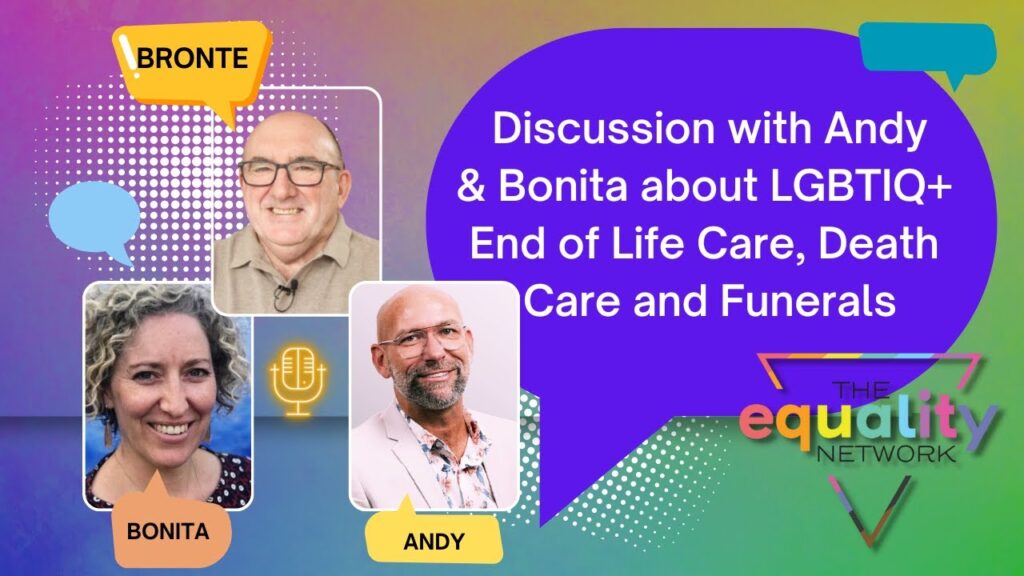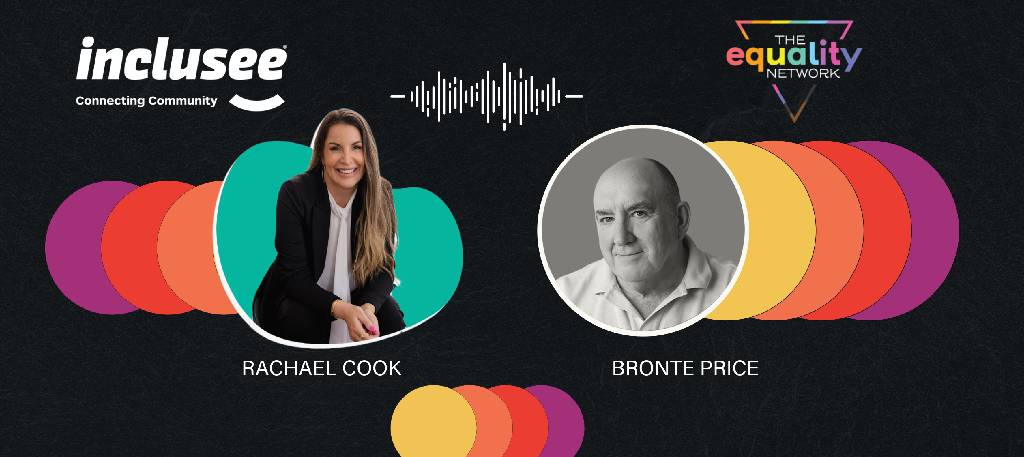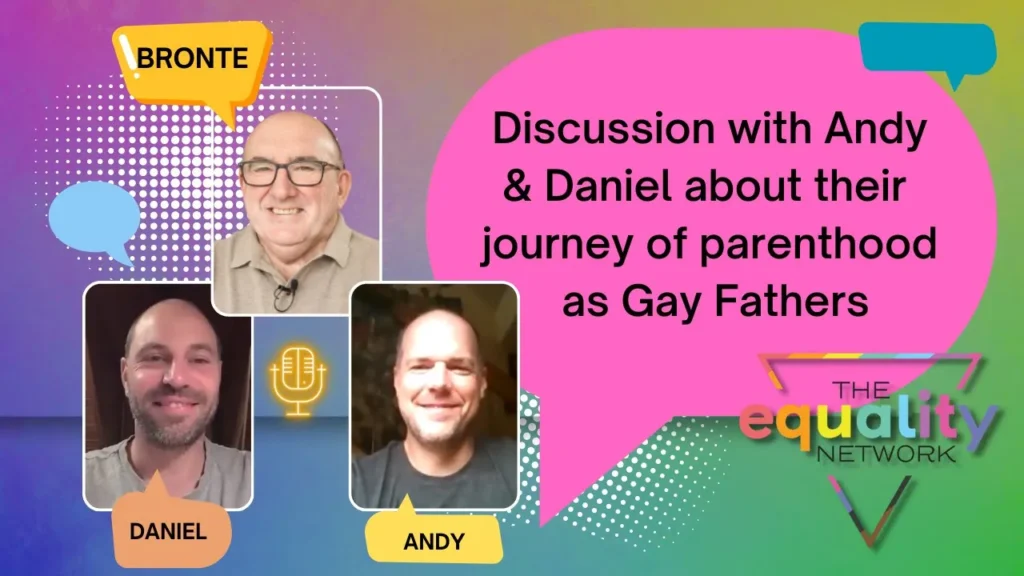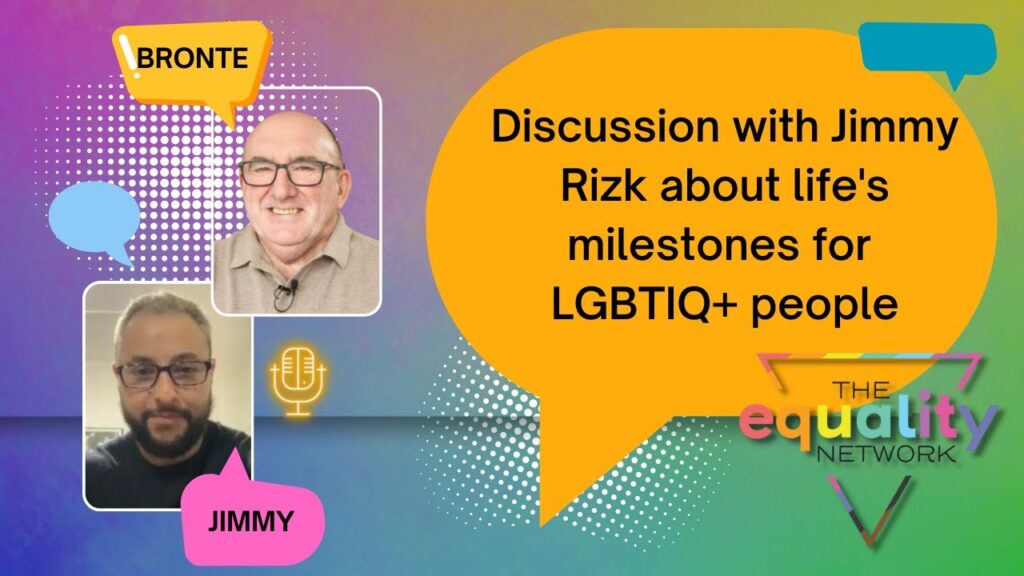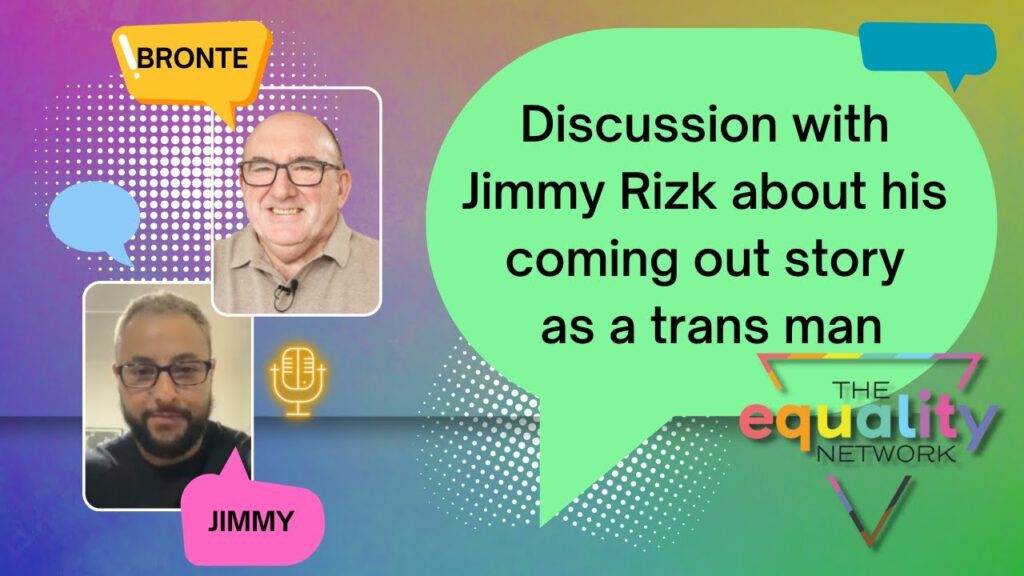Discussion with Ryan about mental health in the workplace for the LGBTIQA+ community
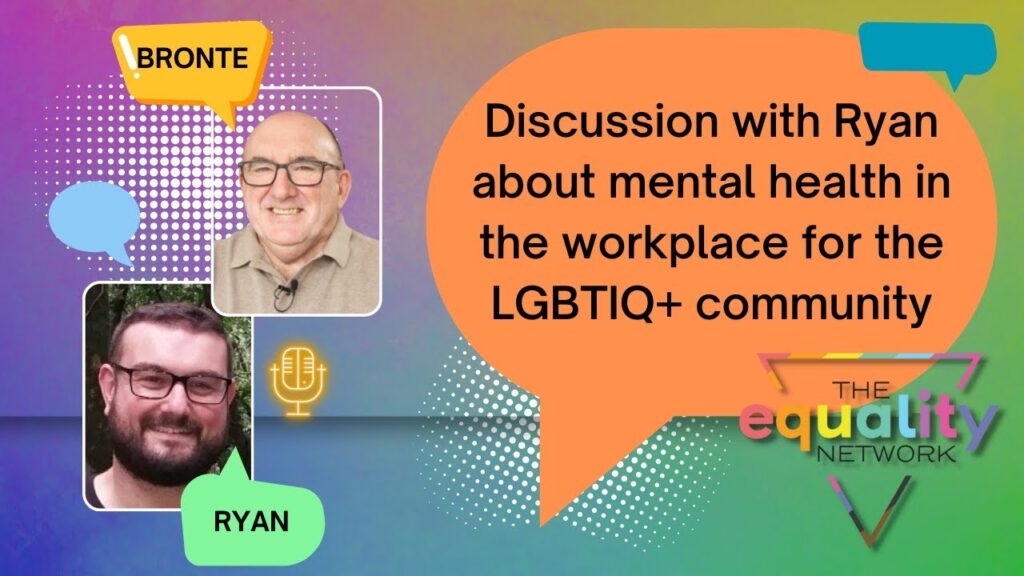
We know that for many LGBTIQA+ people going to work and performing as their authentic selves is difficult. This webinar explores the reasons for that – and the impacts it has on people’s mental health.
In the leadup to World Mental Health Day, we chatted with Ryan, a psychologist who works in the corrective services sector, as well as in schools and youth services. He has a great record of working with people to improve their health – getting people to recognise that every single person will be impacted by someone’s mental health.
Ryan Teuma is a full member of the Australian Psychological Society (APS), a full member of the APS College of Forensic Psychologists. Ryan is a provider of Psychology services with Medicare, TAC and WorkCover.
Ryan has well established skills working with children, adolescents and adults using a range of therapeutic approaches. Ryan has experience working for the Department of Justice, Child Protection, The Australian Crime Commission and the Department of Education.
Watch the full video of the interview to listen to the whole discussion.
The key takeaways from the interview were these:
1. Everyone has a story. Ultimately most people will be impacted by mental health challenges.
2. The biggest mental health issue in the workplace for queer people is having a feeling of isolation or alienation.
3. Even in places with clear queer representation, queer people have mental health issues. Often our own trauma, cultural beliefs, religious beliefs inform our own backpack of information that’s for or against inclusion.
4. The impacts on the individual of not being inclusive are that the person feels disconnected and this may carry on their trauma from school years.
5. There is likely to be a lack of productivity, as a result, and people will take time off because they feel unsafe or don’t fit in or they want to work more from home because they feel safer there than at work.
6. The impacts on the firm are that they will lose great talent.
7. People in the LGBTIQA+ community are quite open to seeking help for their mental health but sometimes it’s hard to find the right GP to get a referral, or to connect with a mental health specialist or to get the help in a timely manner or to get help that’s affordable. It’s harder in regional areas but tele-health overcomes some of those issues.
There are some fabulous resources for workplaces to support queer people – such as Rainbow Health Australia.
Message to someone who is watching this chat and what steps they should take: contact a local GP who you can trust; then ask them to recommend a queer-friendly psychologist or email ryan.teuma@vitalogyconsulting.com.
Transcript of the interview with Ryan about mental health in the workplace
Bronte: Well, welcome everybody! It’s Bronte Price here from The Equality Network and today I’m thrilled to be able to have a chat with a psychologist, Ryan. As you know it’s the 10th of October 2022 today, it’s World Mental Health Day and I thought what better person to have a chat with on this particular day than a psychologist who works right across the general population but also is very comfortable working with the LGBTIQA+ community.
So, welcome Ryan, and thank you!
Ryan: I appreciate it! Thanks for inviting me!
Bronte: So, let’s start by asking you to tell us a little bit about yourself and the kind of work you do, please!
Ryan: Yeah sure. Well, I’m actually a forensic psychologist sort of by trade so to speak and spent the first sort of 10 years of my career working in the criminal justice system sort of at the higher end of Mental Health and obviously within that system, in the men’s and women’s prisons, met a number of men and women in the queer community of course.
But also working across the general population I mean what about diverse ranges of extreme presentations of Mental Health which was a really good background for them working in schools, working in the disability sector, working in the deaf and deaf-blind area as well and the last sort of 13 years now been mainly focusing on two areas of work. One around the queer community in my practice in Preston. The other one would be around the autism spectrum disorder, ADHD and sort of general mental health and forensic admin clinic in Ringwood.
So it’s quite a broad range. This is my 22nd year which shudder to think how many people I’ve worked with but 22 years and only a few grays, which is great. So, it’s working well, and thoroughly enjoy what I do. I always say to people that the process of therapy is a really gentle beautiful process that is only difficult and hard at the beginning but with a hope-based positive approach, people generally always do quite well which is fantastic so it’s quite rewarding for me and for them.
Bronte: Thank you! So as I said earlier, today’s world Mental Health Day! Have you got some thoughts about why it’s so important to celebrate a day like today? Why do we have World Mental Health Day?
Ryan: For me, I think it is an important day! I guess it’s more of an awareness raising. It’s probably for me a lot about everyone just recognising the contributions of all the different types of professionals in the area, not just psychologists, and social workers. A lot of teachers do mental health work, and a lot of friends, neighbours, and family members, every single person will be impacted directly or indirectly within their family or outside their family.
So, it really is every person’s issue cross-culturally, across ages, across generations, across wealth strata, you name it. It doesn’t discriminate at all and everyone has a story, everyone’s life literally could be a bestseller novel, and often it will involve some challenges in the mental health area.
Bronte: So what I want to turn to the workplace if we can and I want to talk to us about what you think are the major mental health issues for LGBTIQA+ people in the workplace.
Ryan: Look the biggest issue I would say would be a sense of isolation or alienation or often there’s only one or two people who identify who are out that identify as the queer community.
And often a lack of queer representation in management and also the type casting that some people in the queer community get from others outside the queer community in terms of how they think certain people would act within the community when it’s extremely diverse and they have no understanding of the range of uniqueness and presentation within it so alienation and I guess isolation and lack of numbers in the workplace.
When you find a workplace that is very queer-focused and queer heavy it doesn’t mean those organisations don’t have issues as well because they do find that groups of different individuals can group together people could still own an isolated and it can still have an impact. So all queer is not the answer as well. There needs to be a lot of balance.
Bronte: Okay and do you find that some of those issues that you talked around about around alienation and identity and so on are based on old stereotypes and stigma associated with being queer?
Ryan: Yeah they would have to without a doubt be old stereotypes and stigma and I guess the belief systems of others outside the queer community which can be informed by their own trauma, their own lack of information, their own misinformation, maybe their own political or religious beliefs as well cultural beliefs as well. You know, Melbourne is such a culturally diverse place.
I guess most of Australia is particularly Melbourne as well and so you’ve got lots of different people all trying to fit in their own way bringing their own backpack of information which is you know for or against inclusivity depending on how they interpret, what is inclusivity for them.
Bronte: Yeah yeah and do you find that there are some and I guess here we go to stereotyping in a way that some industries see that some business sectors are more problematic less inclusive in terms of mental health of LGBTIQA+ people than others?
Ryan: Um look it’s hard to make big generalisations like that. I mean I found organisations like Victoria Police, the Department of Justice, the prison network you know incredibly inclusive contrary to what most people would think. But then I found some areas like construction and engineering and accounting and tax, you know, really suffering in those areas of inclusivity and not just for the career community but just for lots of other groups as well cultural or religious or even gender.
So yes, some sectors are better or worse than others, it really depends on the way they’re led and ongoing awareness of what our up-to-date knowledge, understanding and terminology of all the progress that goes on within the community because it’s forever changing over you know my lifetime, in your lifetime.
Bronte: Yeah I want to go there for a second and just ask about do you find that if a workplace or part of an industry sector is not necessarily as inclusive as it might be? Is that in a general more broad way as well so not just around sexuality and gender, there’s race and age and mobility and so on.
Ryan: Yeah race, culture, age, ability, and also disability, a lack of inclusiveness with disability– a lot of people have a whole range of health complications – hidden, non-visible mental health issues with and within and outside the queer community so there are lots of issues around inclusivity.
Yeah absolutely!
Bronte: yeah yeah
Ryan: It’s very very broad and that’s just I guess you know LGBTIQA+ issues are one aspect of the overall issues around inclusivity.
Bronte: So talk to us a little bit about the impact on the individual if their workplace is not inclusive
Ryan: Look there’s a lot of impacts – one would essentially be a lack of sense of belonging in the organisation and a lack of belonging in your workplace which would be you know up to 20 to 30 to 40 hours a week leaves the person feeling quite disconnected and unneeded so that can replicate what they may have experienced in their teenage years in high school and primary school.
So, it carries on that trauma that I am different no one understands me I’m unlovable and that can be replicated within their family as well. So it’s pretty pretty big, it’s a huge impact really.
Um, you know other people outside the community might think of what’s the big deal we don’t bring our sexuality to work why is it such an issue for the queer community. Well, that’s because alienation isolation goes back to primary use and formation of early childhood, senses of belonging and connection and that worthiness of living or feeling loved and included and if that pattern repeats in primary years, secondary years, tertiary years, workplace environments, the person can never really feel a sense of where do I fit in which is why, you know, there are big issues around suicide and self-harm and the way mental health is managed and not managed within the queer community so it does need its own special attention.
Bronte: I want to…so that’s the impact on the individual. What’s the impact on the business or the workplace itself if that workplace just isn’t inclusive?
Ryan: Look I mean from a horrendous capitalist perspective, they’re losing great talents. They’re losing people who are, you know, typically wholly created very dynamic, extremely hard-working, wanting to prove themselves, very focused, not distracted by the things in their life and really want to work hard and fit in.
They will lose talent, they will lose diversity with thought, they will lose a lot of compassion and so it is the lack of diversity of their workplace won’t encourage others, from all diverse backgrounds to feel included and connected and so it means the organisation won’t grow. It’ll stay stagnant and the world will just continue on around them so it creates a stagnation in the organisation and a loss of really valuable employees that could be around for long term. They could make their connection to their workplace part of their life story.
Bronte: And presumably the word spreads so if they’ve been they’re in non-inclusive workplace then the tomtom drums will just sound very quickly across the community and have an impact as well, I would say.
Ryan: Absolutely, reputation I guess is everything these days, yeah.
Bronte: I think it’s true also that there’s this other impact around lack of productivity so if a person is fearful of being able to be their authentic selves at work, then they may put themselves throw themselves into their work to avoid contact and engagement with other co-workers but that doesn’t necessarily mean that they’re productive in a way, they’re just self-absorbed rather than doing the work that perhaps they should be.
Ryan: Yeah exactly! And I guess that need to fit in can drive excessive amounts of hard working, huge amount of hours to prove themselves towards and prove themselves to themselves that they’re worthy of being included or that they’re worthy of being considered for full-time work or for promotions or just to feel safe and connected and part of the team and the broader network of the organisation, yeah absolutely!
Bronte: And just being able to be part of that fabric and that to have that idle chit-chat, that banter at the coffee – perhaps they’re excluded from that I think, yeah.
Ryan: And just being able to feel relaxed enough to be in a staff room or outside, you know, at a tea break or in a meeting and feel that there’s not an anxiety where they’ve just got to get up and go get their jobs done, they can move on, they’re actually part of the fabric of the place.
Bronte: Thank you!
Ryan: And we all want to fit in, we all be part of the fabric of something and it’s critical for our well-being particularly when work takes up such a large part of our life and also, you know, a lack of inclusivity will no doubt increase people taking time for sick days or days off or wanting to work more from home because they feel safer than feeling isolated at work– no one’s saying hello, people not connecting and I guess the impact of covert and work from home really tested the inclusivity of workplaces where people either felt really connected or very disconnected and there was the amount of job change in the last 12 months has been extraordinary.
Bronte: Okay!
Ryan: Extraordinary amount of movement.
Bronte: Yeah thank you! Is there a general…do you find a general eagerness or a general reticence amongst the LGBTIQA+ community to seek help from a professional like you. Do they kind of gird the loins and go for that or do they try and work it out themselves. Is there a reticence or an eagerness have you found?
Ryan: I guess my view is kind of biased because I have a lot of experience of a lot of people really wanting to connect and really wanting to explore and I think the idea of taking responsibility for our own journey with our own mental health is quite a very broad, well recognised premise across the queer community. So I think there’s a lot of dialogue within the community to seek and look for help and connect so I don’t think there’s an issue with people wanting to do it. It’s just getting access to one having the right fits, getting it in a timely manner and it being affordable and it being consistent enough to create change and connection.
So, I think you know generally people in the queer community are quite open to it. They’ve got to find the right GP to get the referral path and then they’re going to find the right therapist and usually that’s through word of mouth it’s still that old-fashioned word of mouth way because people want to trust someone with some of the most private parts of their life.
Bronte: So that’s the first step – they’ve got to go to their GP to get a referral to you as a as a therapist or a psychologist, yeah.
Ryan: Correct yeah. See your GP. Chat to your GP and look fortunately… Melbourne is blessed with a number of fantastic queer friendly clinics and, you know, fortunately there are so many queer friendly doctors out there that we have an abundance of choice which is wonderful and that’s across you know most of Melbourne obviously regional areas it’s a lot harder, however, with Telehealth we now have more options for that which is fantastic,
Bronte: Yeah, it’s great. It’s much more…makes it even more accessible, doesn’t it?
Ryan: It does. It really does, yeah
Bronte: What are some of the steps, the easy steps that workplaces can take to be more inclusive and therefore have a positive impact on queer people’s mental health do you think?
Ryan: Um in terms of workplaces I guess really making sure that there is the right imagery around the workplace as, you know, as simple as you know a rainbow sticker might be or flags, the different flags within the community. Little steps like that are small indicators on the front of a shop door, on the front of the hairdresser, in front of a restaurant, on the front of a doctor’s clinic that gives an immediate indicator that this place you’re entering is a safe place.
There’s a sense of awareness but it doesn’t just start there at the actual at their logo. It’s really about the way managers have open dialogue and discussion about diversity and inquisitiveness and they’re using those words and understanding the terminology that create workplace safety for all people and talk about inclusiveness not just in terms of gender and sexuality and identity but in terms of disability culture and religion and all areas of interest in someone’s identity and that level of evolvement really is the responsibility of management to ensure that they are not just talking the talk but walking the talk and really practising what they preach because when conflict erupts in an organisation and biases take over in terms of employment and progress you see the cracks in the veneers of the talk and you see that the walk is not being done and that’s when people lose hope and lose faith in their safety in their employer.
Bronte: It really is about doing rather than just saying that you’re inclusive by things that you actually do in the workplace. You talked earlier about some of the resources that are out there and we’re particularly blessed in Melbourne in terms of not just such a range but also a number of queer friendly resources, are there some particular ones that you think queer people might exist if they were encountering some issues at work in terms of Mental Health?
Ryan: Absolutely the most outstanding one I would recommend would be that everyone whether they’re a manager or a quite a junior staff member recommends that the organisations themselves look at Rainbow Health Australia and get your organisation or workplace a rainbow health check and the training that’s provided to the organisation, the follow-up, the messaging, the information. I mean it’s outstanding, it’s exceptional and we really do lead in the Rainbow Health Australia really, do lead worldwide with that sort of information.
So, we weren’t literally Melbourne born and brought up for Australia to make their workplaces far more healthy. The RainbowHealthAustralia.org today you strongly recommend everyone looks at it passes on to their manager if you’re a manager I feel like it’s a responsibility to really inquire and embrace.
Bronte: Yeah, what message would you give to someone who’s watching this chat and thinking I need to contact someone? Who would you suggest contact or what steps do you think they should take? Is it to the GP first thing?
Ryan: Initially would be to the GP. So looking for a GP in their local area that they can trust usually through Word of Mouth and there’s a whole range of um GP’s out there and then obviously talking to GP about a queer friendly, psychologist or therapist or social work depending on their needs some may have specific needs that other therapists can’t attend to that need to be done through specific types of therapists.
There’s also the option for them to look at defined psychology service from the Australian Psychological Society so if they print their search engine find a psychologist from the Australian Psychological Society they can put in their presenting issues they can put in their location, they can put in what they want for the psychologist to have in terms of queer friendly, it could be around depression personality disorders workplace issues and they will get a selection of registered qualified practitioners in their area and contact details to start inquiring.
Bronte: Wow thank you! So finally Ryan how do people get in contact with you if they
want to?
Ryan: Yeah look I’m traditionally pretty hard to find but the best way would be email.
So, ryan.teuma@vitalogyconsulting.com, it’s a bit long. I should have made it shorter 13 years ago but it’s too late now, I’ve just got to run with it. And send me an email and we can work out if I’m the most appropriate therapist for yourself otherwise I can look for someone, I’ll help you find someone.
And you can start I guess your journey or where you want to go with your space, yeah!
Bronte: Thank you very much and thank you very much for your time. It’s just been a pleasure talking to you!
Ryan: Thank you, sir!


